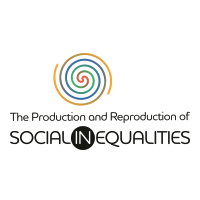Between Hired and Forced Productive Labor: Transition from Simple to Generalized Commodity Production in 17th and 18th Century Gujarat and Mysore?
Kaveh Yazdani (University of Connecticut)
Abstract:
In the past 30 years, few historians have examined the relationship between capitalist development and labor relations in pre-colonial India. Indeed, a considerable portion of recent revisionist writings rather focus on markets and exchange than on the problems of value, (productive) labor and class relations. Until recently, the most influential Marxist scholars have usually emphasized the centrality of free wage labor as against forced labor in determining whether the specific mode of production in question is or was capitalist or not. In the historiography of pre-colonial India too, bonded forms of labor have not been considered to be part of the lineage of capitalist development. However, the dichotomy between free and unfree labor and the assumption that only the former is capitalist whereas the latter is not has been rightly criticized by a number of scholars. A less binary understanding of labor relations also helps to better understand the specificities of pre-colonial Indian labor history and its potentialities of capitalist and/or industrial development by considering both (semi-)free and compulsory forms of productive labor. In short, I will discuss the concepts of a) productive and unproductive labor; b) the notion of transition and c) simple and generalized commodity production. Then, I will argue that analyzing socio-economic developments and labor relations in Mughal and post-Mughal India, especially the provinces of pre-colonial Gujarat and Mysore – through the lens of the aforementioned Marxian categories and frameworks – can shed light on both capitalist and non-capitalist, but also intermediary processes within these two regions.
Date:
October 15, 2023
5:45-7:15 pm (CET)
Venue:
University of Cologne
Room S83, Philosophikum
Universitätsstrasse 41, 50931 Köln
Zoom:
Registration : contact-socialinequalitiesuni-koeln.de
